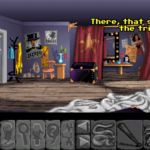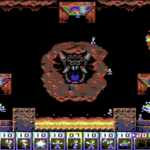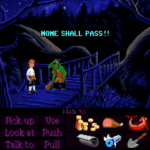Details of Analogue OS have been revealed, the operating system that will underpin the forthcoming Analogue Pocket handhelds.
Analogue’s range of devices are made possible by FPGA (Field-programmable gate array), essentially a programmable chip. The same technology that has made a whole host of retro gaming platforms and enhancements possible, FPGA eliminates many problems usually encountered with emulation.
Like the Analogue Pocket, Analogue OS is designed to let you explore video game history, letting you play any physical game, save game states, create and share playlists, track gameplay, and even develop your own FPGA cores.
Box Art and More
Analogue OS brings a slick, “player” dimension to retro gaming, letting you add box art, game title screens, or artwork in order to showcase your games. Playlists let you access your favorite games faster, and the playlists can also be shared. Gameplay tracking, memories, save states, screenshots, and more are all possible (some of these features will come in Analogue OS 1.1).
Also supported is display optimization, from device screen to the Analogue Dock, which lets you connect lag free to a 1080p HDMI display, or even to a CRT for an authentic retro gaming experience (or in their words “video game history experience”).
With wired and wireless support, Analogue OS delivers original display modes that recreate at a subpixel level the look and feel of original displays (such as the Game Boy Color, Game Gear, etc.)
So, while news remains sparse concerning the release of the hotly-anticipated Analogue Pocket, Analogue OS at least looks like it will provide decent experience.
Affiliate Disclosure: Some of the links in this post may be affiliate links, which means I may earn a small commission if you make a purchase through those links. This comes at no extra cost to you. Thank you for your support!
Christian Cawley is the founder and editor of GamingRetro.co.uk, a website dedicated to classic and retro gaming. With over 20 years of experience writing for technology and gaming publications, he brings considerable expertise and a lifelong passion for interactive entertainment, particularly games from the 8-bit and 16-bit eras.
Christian has written for leading outlets including TechRadar, Computer Weekly, Linux Format, and MakeUseOf, where he also served as Deputy Editor.
When he’s not exploring vintage consoles or retro PCs, Christian enjoys building with LEGO, playing cigar box guitar, and experimenting in the kitchen.






